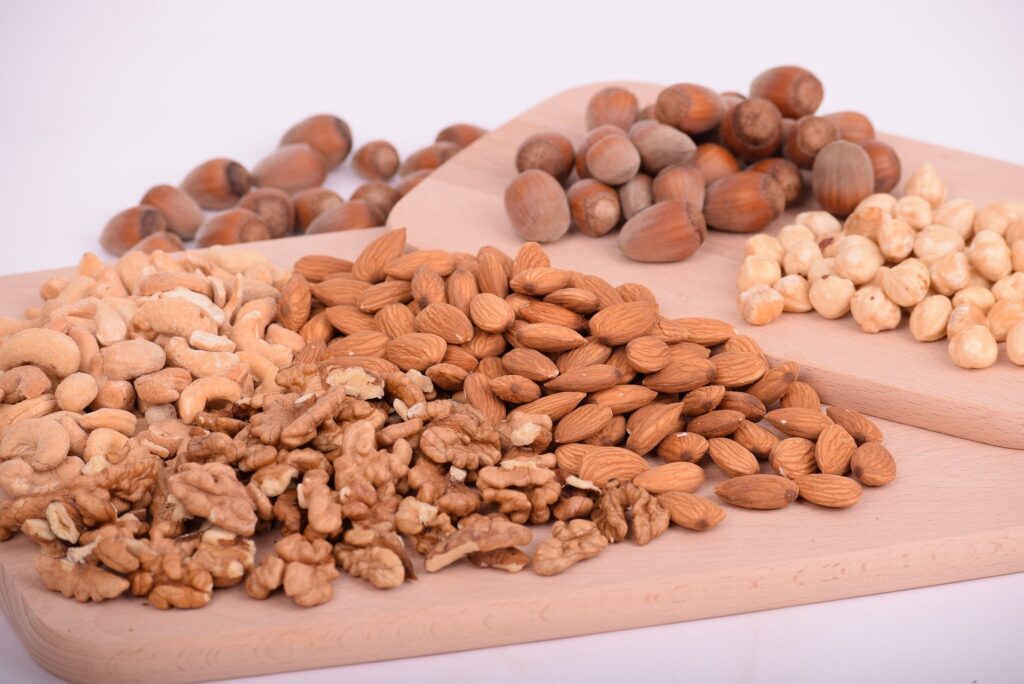A person needs a set of specific nutrients – proteins, fats, carbohydrates, vitamins and minerals. Proteins are organic substances of animal and plant origin that provide support for the cells of the human body. Their main element is numerous amino acids.
What are Proteins Made of?
Proteins are made up of amino acids, which are their building blocks. Some of them our body is able to produce independently, they are called replaceable. And there are also amino acids that can only be obtained through certain foods, since the body is not able to synthesize them. As you might have guessed, they are called irreplaceable. These include:
- histidine
- isoleucine
- leucine
- lysine
- methionine
- phenylalanine
- threonine
- tryptophan
- valine
What Types of Proteins are There?
In turn, proteins are divided into complete and incomplete.
Complete proteins are considered those in whose composition there are all the essential amino acids. They contain products mainly of animal origin: meat, poultry, eggs, dairy and fermented milk products.
Incomplete proteins include proteins that lack at least one of the above essential amino acids. As you can understand from the name, the main source of this type of protein is vegetables, fruits, legumes, cereals, and nuts.
What Role Do Proteins Play In Our Body?
Proteins are called growth foods. They are like a framework that provides structural elements to each cell of the body. Proteins are responsible for the growth, repair, and replacement of tissues. Proteins are the only nutrient that can duplicate itself. Tissues grow by piling on top of each other millions of protein molecules, until each organ reaches its full development, after which, they are replaced by new ones.
Protein can be compared to a long pearl necklace, where each pearl is an amino acid, a small piece of protein.
This incorrect concept of nutrition is very popular: if a nutrient is useful, then there should be a lot of it! This is a misconception. The body needs a certain amount of each vital nutrient; if it is not enough, the body cannot function normally, if it is too much, it is an additional burden for it. The same applies to proteins. With an excessive intake of protein, the body begins to work with the load, trying to distribute calories. A person pays for this with an incorrect metabolism.
The Consequences of Protein Deficiency
Protein also contributes to a slower rise and fall in blood sugar and insulin levels, so you can avoid “sugar spikes” after eating sweets without the appropriate amount of protein.
If there is an insufficient amount of protein in food, the working capacity of a person and the resistance of his body to infectious diseases decrease. The most pronounced signs of protein deficiency in the body are memory loss and weakening of mental capabilities, loss of resistance of the body, the formation of cellulite, the disappearance of the female physiological cycle or a violation of its normal course.
What Foods Contain Protein?
The body needs 22 types of amino acids, of which only 13 types it can synthesize itself. The remaining 9 amino acids, called essential, person should get with food. Proteins containing all 9 essential amino acids are called complete. Meat, fish, chickens, eggs, dairy products-these are the main sources of full-fledged proteins. Vegetables, cereals and especially legumes (dry peas, soybeans, lentils, beans) are excellent sources of proteins, called inferior, because they contain many, but not all, amino acids in different ratios.
Functions of Protein in the Body
What are proteins for? Along with fats and carbohydrates, they play an important role in the work of the body, performing the following functions:
- Constructional. Proteins are the main structural material of all cell membranes.
- Catalytic. Almost all biochemical reactions occur due to proteins-enzymes. For example, pepsin, a digestive enzyme in the stomach, helps break down proteins after eating.
- Motor activity, because the work of muscles, bones, and our general condition directly depends on the consumption of proteins.
- Protective. Antibodies are proteins produced by the immune system that help detect pathogens and fight infections.
- Hormonal. Hormone proteins coordinate the body’s functions, for example, insulin controls the concentration of sugar in the blood, regulating the absorption of glucose by cells.
- Connecting. For example, collagen and elastin play an important role for connective tissues.
- Receptor. Proteins play an important role in cell-to-cell communication and signal transmission.
The Difference Between Plant and Animal Protein
Animal Protein is the one that is contained in the products that we get from livestock and fishing (various types of meat and poultry, fish and seafood, eggs, dairy and fermented milk products). They are considered complete sources of protein in food, as they contain all the essential amino acids that the body needs for effective functioning.
Unlike animal protein, plant protein is found in beans, nuts, cereals, vegetables, and soy products. They are considered defective because they lack one or more essential amino acids that the body needs. Most often, they lack methionine, tryptophan, lysine, and isoleucine. That is why nutritionists and doctors insist on a balanced diet to get the full range of nutrients.
